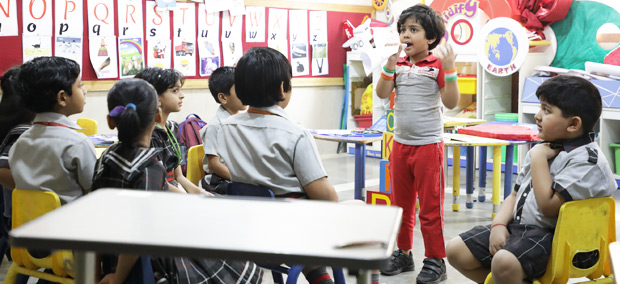Learning Through Play: How Structured Play Enhances Early Education
Can children learn even when they are playing a game and having fun? Absolutely! Gone are the days when playtime was considered just a break from formal education. In today’s realm of education, we understand that play is a powerful tool for learning and development. Amidst the giggles, cheers, and playful banter, children engage in a myriad of experiences that stimulate their minds, ignite their creativity, and nurture essential skills. This is the power of structured play in early education. If you are searching for the best kid’s school in Odisha, understanding the importance of structured play is fundamental. In this blog, let’s explore why structured play is crucial and how it unlocks a treasure chest of learning for young minds.
What is Structured Play?
Structured play, or “goal-oriented play,” is any activity with a set of rules or objectives. It is intentional playtime designed to achieve specific learning outcomes. Unlike free play, which is spontaneous and allows for open-ended exploration, structured play involves guided activities tailored to stimulate cognitive, social, and emotional development. This framework can involve:
- Specific materials: Building blocks, board games, puzzles, or storytelling.
- Clear instructions: Following steps, taking turns, or working towards a specific outcome.
- Adult guidance: Facilitating the activity, providing gentle prompts, and ensuring a positive learning environment.
Why is Early Education Important?
Early education sets the cornerstone for a child’s lifelong journey of learning and development. During these formative years, neural pathways form rapidly, paving the way for future learning and success. Research has shown that quality early education programs that incorporate structured play can significantly impact a child’s well-being, social skills, and academic performance. Some key benefits of early education include:
- Improve memory, problem-solving skills, and critical thinking.
- Promotes stronger social and emotional development.
- Develops fine and gross motor skills.
- Promotes socialisation, communication, and problem-solving skills.
- Fosters a love for learning and curiosity about the world around them.
By choosing ODM Public School, the top nursery school in Bhubaneswar, Odisha, which prioritises structured play, you are giving your child a head start on their educational journey.
How Does Structured Play Enhance Early Education?
Structured play goes beyond simple entertainment. It acts as a catalyst for learning, offering numerous benefits that complement traditional teaching methods. Here is how it specifically enhances a child’s early education:
- Learning Through Play: Through puzzles, problem-solving activities, and hands-on experiments, structured play stimulates critical thinking, creativity, and problem-solving skills.
- Building a Foundation for Academic Success: From following board game rules to mastering puzzle assembly, structured play builds the foundation for crucial academic skills like maths, reading, and critical thinking.
- Developing Social Skills: Collaborative play fosters teamwork, communication, and empathy as children engage with peers in structured activities.
- Managing Emotions: Structured play provides a safe space for children to practice expressing and managing emotions. Following rules, dealing with setbacks, and celebrating success are all part of the structured play experience.
- Building Confidence: Completing a structured play activity fosters a sense of accomplishment and boosts a child’s confidence in their abilities.
Benefits of Structured Play in Early Education:
The benefits of structured play in early education are numerous and far-reaching. Some key advantages of structured play include:
- Cognitive Development: Structured play activities like puzzles, board games, and building blocks encourage critical thinking, problem-solving, and strategic planning. As children experiment with different approaches, they learn to reason, analyse, and make decisions.
- Language Development: Children expand their vocabulary and improve communication skills by telling stories during dramatic play, describing objects during a scavenger hunt, or following instructions in a game.
- Motor Skills Development: From building towers with blocks to following a dance routine, structured play activities help refine gross motor skills like balance and coordination.
- Social and Emotional Development: Structured play activities often involve interacting with peers. This helps children learn the importance of sharing, taking turns, following rules, and collaborating towards a common goal. These experiences promote valuable social skills and emotional development.
In conclusion, structured play holds immense potential in enhancing early education outcomes. At ODM Public School, the top pre-primary school in Bhubaneswar, we recognise the transformative potential of incorporating intentional play activities into our curriculum. By doing so, we enrich the learning experiences of our students and ensure that each child’s unique needs and interests are met. Through structured play, we foster holistic development, stimulate creativity, and cultivate essential skills that lay the foundation for future success. As we continue to embrace the value of play-based learning, we can ensure that every child gets the best possible start in their academic journey.

